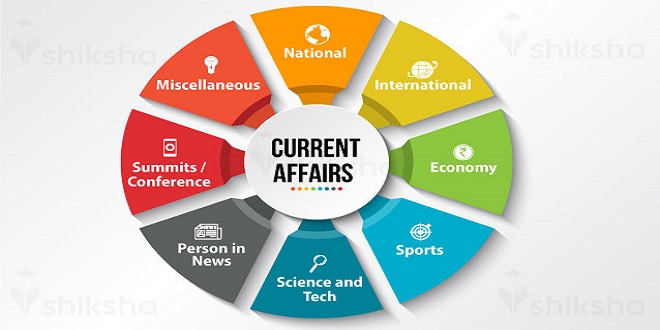UPSC Current Affairs Strategy

In recent times, the prominence of current events has strengthened in tandem with the analytical tendency of questions and the rising weighting of the environment and science. There is no discernible pattern in the UPSC’s use of current events to pose questions. Its unpredictability may be seen in last year’s paper, which included several direct questions based on current events.
Current events are important in all three tiers of UPSC examination, particularly the Mains and Interview. It covers a broad range of topics that cross over with core subjects like geography, politics, economics, and history, as well as dynamic subjects such as environment, science, and technology. As a result, it’s difficult to categorise inquiries under a certain title or topic. Practising current affairs quiz regularly helps candidates have the edge over others.
General Strategy
A candidate should first gain a thorough understanding of the civil services exam syllabus and establish a list of topics such as economics, science and technology, environment, polity, international relations, security, and society. These topics should be separated into subtopics once more, such as economics, which includes subtopics such as food processing, infrastructure, investment models, inclusive growth, and so on. Similarly, international relations include bilateral connections with key countries and organisations, such as the WTO, SAARC, SCO, BRICS, and others. When candidates read articles on various subtopics, they should jot down a few notes at the same time and revise them on a regular basis.
In the Preliminary exam, facts and statistics will be extremely useful, but in the Mains exam, interrelating news with subtopics and analysing it will help candidates build their own perspectives. The Interview stage reflects this holistic approach as well. The newspaper provides a wealth of information that is irrelevant to the UPSC examination. The candidate must avoid news concerning political parties as well as their meetings, stock market information, entertainment columns, sports coverage, other local or regional news, and so on. However, if one deems sports or entertainment to be a hobby segment in the Interview, they may read it. Aspirants are expected to revise and amend their notes on a routine basis rather than just reading the newspaper. This will be beneficial to them during their preparation phase.
Focus Areas of Current Affairs
- Polity: Latest news concerning India’s constitution, Rajya Sabha, Lok Sabha, Legislation and Statutes, administration, fundamental rights, societal problems, centre-state relationships, election reform, SC-ST protections, cooperative issues, and other topics.
- Economy: News about the Indian economy, worldwide reports and metrics, banking and finance, non-performing assets (NPAs), banking reforms, inflation, joblessness, poverty, and inequality. Additionally, areas of India’s economy, India and its trade deal, and plurilateral platforms for commerce, such as the World Trade Organisation, the International Monetary Fund, and the World Bank, among others. Annual budget and economic survey are important too.
- Environment: Biodiversity headlines at the world, national, and local levels, Threatened species, IUCN endangered species, important biodiversity zones, nature conservation, climate change, COP, ozone layer depletion, and so on.
- Art and culture: Anything with regard to national historical sites and monuments, monument protection, national and regional celebrations, dance forms, and artworks, among other things.
- Science and technology: Recent scientific breakthroughs, artificial intelligence (AI), the Indian Space Programmes, as well as other significant space missions, India’s contributions to science, biotech, and communications technology, and so on.
- Governance: Various government programmes, plans, and initiatives, as well as amendments to current legislation.
- International relations: Visits of Indian leaders on bilateral and multilateral platforms such as the World Trade Organisation, the United Nations, and other international organisations, as well as key political events.
Aspirants must always focus on issues that have the potential of significant effects on important things. Stuff which is just for hype and doesn’t affect the day-to-day governance, life of people at large and critical sectors of government, economy and administration should be avoided. Candidates should start their preparation beforehand and must not wait to submit applications on the online upsc.
The above strategy is a general one and might not cater to each and every need of all the aspirants. Hence, it is advised to use the above tips to create a personalised strategy to tackle the exam.

